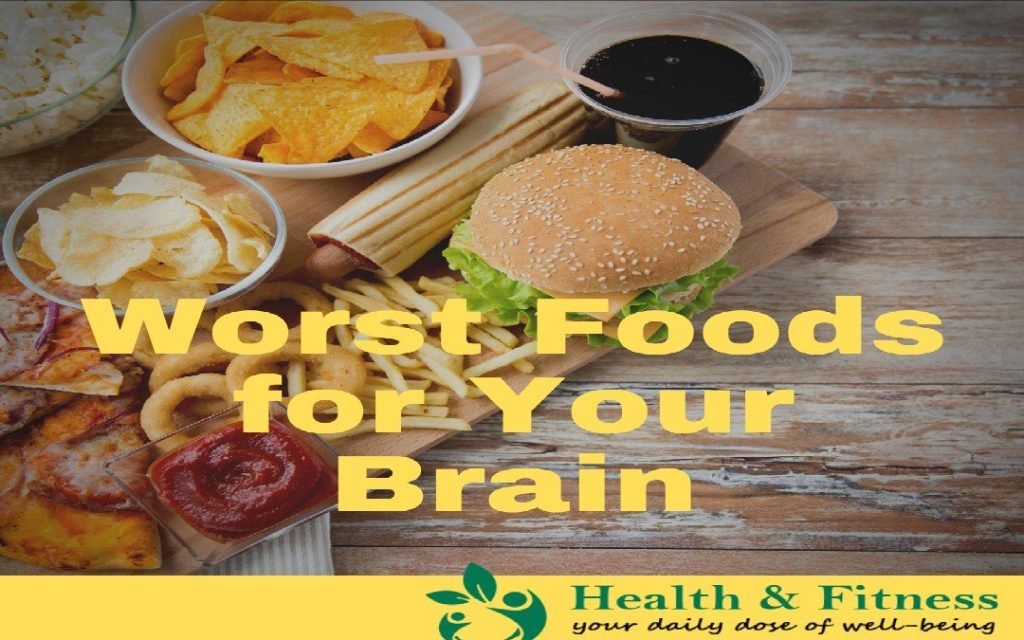The brain is our most critical component of the Body. The heart, lungs, and all the processes in your body are maintained for breathing. This is why the brain should function optimally with a balanced diet. Some foods damage the brain, influence memory, and mood and increase the risk of dementia. Eating the right food can make you feel healthier and even battle dementia, but the right food can have an effect on your cognitive ability and even raise the risk of dementia, Alzheimer’s disease, and other diseases that can impair the memory.
Sugar Drink
Heavy consumption of sucrose Drink will not only increase your waistline and increase your risk of diabetes and heart disease but will also adversely affect your brain. Long-term use of Sugar can lead to a lot of neurological disorders and it can affect your memory as well. Sugar can also mess with your learning abilities, so pre-baked foods, sugar, siphon, and fructose items should be avoided.
Refined Grains
Sugar and processed grains, including white flour, are found in refined carbohydrates. These carbohydrates are normally extremely glycolic. That means that your body digests them quickly and triggers a blood sugar and insulin spike. High GI and high GL foods have been shown to affect the activity of the brain. Research indicates that memory in both children and adults can be impaired only with a single food with a high glycolic load.
Alcohol
Although some evidence indicates there may be some health benefits with one glass of wine per day, this can lead to reduced cognitive activity and less overall brain health. A new study of more than one million French dementia patients found that alcohol use and alcohol-related problems are one of the most preventable causes of dementia. The majority of patients with early admission dementia in particular had heavy drinking or alcoholism.
Highly Processed Foods
Foods like chips, cookies, instant noodles, popcorn microwave, store-bought sauces, and frozen foods are included in them. These foods typically have high levels of calories and low levels of other nutrients. They are precisely the kind of foods that trigger weight changes that can have a negative impact on the health of your brain. The nutrient content of processed foods can also advertise the brain and help to establish degenerative diseases in the western diet.
The blood-brain barrier for the rest of the body is a membrane that connects the brain to the blood supply. It helps protect the brain by limiting the introduction of such chemicals.
Trans Fats Heavy Foods
Tran’s fats are a kind of unsaturated fat that can adversely affect the health of the brain. Although in animal products such as meat and milk trans-fats occur naturally, they are not of significant importance. Tran’s fats, also called hydrogenated vegetable oils, which are industrially processed, are a concern. However, some studies have not established a correlation between intake of trans-fat and brain health. They impact many other health factors, including cardiac health and inflammation.
Fast Food
Fast food is high in fat, which can make battling the plaque which is Alzheimer’s difficult for your body. Junk food is also filled with sodium, causing memory deficits almost instantly. Fast Foods high in fat can also cause some symptoms which, when you stop eating, are close to withdrawal signs. These foods influence the production of dopamine, a drug that promotes pleasure and a global sense of well-being.
In addition, dopamine helps the cognitive function, the ability to learn, alert, motivation, and memory. Therefore, all foods containing unnecessary fat should be avoided.
Fish High in Mercury
Mercury is a neurological contaminant of heavy metals that can be retained in animal tissues for a very long time. Long-life predatory fish are especially vulnerable to mercury accumulation and can be more than 1 million times the surrounding water concentration. Mercury toxicity affects the central nervous system and neurotransmitters as well as activation of neurotoxins, which contributes to damage to the brain. Mercury can interrupt brain development and cause loss of cell components in the development of fetuses and young children. Cerebral paralysis and other delays and deficits in development may result.
Conclusion
Your diet probably has a huge effect on the health of your brain. High in sugar, fine-tuned carbohydrates and unhealthy fats may lead to diminished memory and learning, as well as increase the risk of diseases like Alzheimer’s and dementia. When ingested in large amounts, alcohol can cause significant damage to the brain, while mercury contained in seafood can become neurotoxin and permanently damage the brain.



